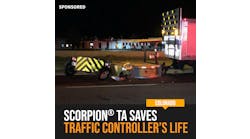Last week, Delaware Governor John Carney signed new laws for stricter punishment for speeding and reckless driving following a recurrent pattern of increasing fatalities on state highways.
“We’ve got a real highway safety problem up there, if you haven’t noticed. Just go out and drive on any of the roads up and down our state,” Carney said to WHYY. “This package comes at a really important time as the fatalities on our state highway highways have hit an all-time high, sadly.”
The number of highway deaths in the state has been steadily rising in recent years. In 2020, 113 people died, followed by 136 in 2021, and in 2022, the state tied a record set in 1988 for highway deaths at 165.
As a response, Carney introduced the recently signed package of bills. Since then, 43 people have been killed along state roads.
“It’s mostly preventable,” Carney said. “Distracted driving, not wearing seatbelts, speeding is just a big problem.”
Under the new laws, drivers going above 90 mph will be considered driving recklessly and face fines and other penalties under existing reckless driving rules.
Another existing law being expanded by the state is the “move over” law, which will now require drivers to change lanes or reduce speeds when any vehicle is pulled over on the shoulder with its warning lights illuminated instead of only first responder vehicles.
Motorcyclists will now be required to wear a helmet for the first two years of having their license. The move follows statistics from the Delaware Department of Transportation (DelDOT) that shows 25% of serious injury and fatalities happen within the first two years of procuring a license.
In the past five years, 35 people were killed and 143 seriously injured when not wearing a helmet while riding a motorcycle.
“Last year we lost 12 people to motorcycle fatalities,” Delaware Representative Sean Lynn said. “Helmets reduce the risk of head injury by 69%. This new law will help us to ensure that conditions are safer for those operating and riding a motorcycle by requiring everyone who obtains a new endorsement, or are riding with a new rider, wear a helmet and eye protection.”
Other rules in the package include specific guidelines for when a child must be in a rear-facing car seat, a front-facing car seat, or a booster seat.
In the next year, the state will launch a campaign to educate parents on the new rules and how to best keep their kids safe.
“It puts an emphasis on education,” said state Delaware Senator Kyle Evans Gay. “That’s where we want to be as a state, making sure the parents and caregivers have all the information and tools they need to keep kids safe.”
Starting July 1, 2024, kids under 2 years old and less than 30 pounds must be in a rear-facing seat. A front-facing seat with a five-point harness is required for those under 4 years old and less than 40 pounds. Kids between the ages of 4 to 16 must be in a booster seat as long as their height and weight fall under the recommendations from the vehicle’s manufacturer.
Carney also signed a bill to create a five-year trial run for speed cameras in work zones and residential areas within municipalities.
A measure that did not pass was a ban on open alcohol containers in vehicles. Delaware is one of several states that is not in compliance with the federal Transportation Equity Act when outlawing open containers.
The bill containing open containers was approved in the House in a 28-11 vote last week and will be up for consideration in the Senate in January 2024.
---------------------------------------------
Source: WHYY



